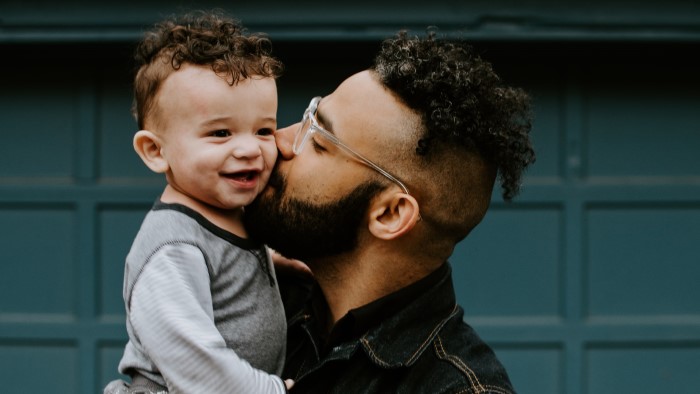


The toddler years (ages one through three) are greatly rewarding as you watch your child’s language skills blossom and their personality emerge. But it can also be difficult as they test boundaries and exert their newfound sense of independence.
As a pediatric dental office, we want to make sure that you have all the information you need to help your toddler maintain healthy teeth and gums.
Here’s some dental hygiene tips to get you started.
Take your child to see a pediatric dentist once they get their first baby tooth or by their first birthday. Unlike a general dentist, a pediatric dentist specializes in treating children and has additional years of schooling.
We’ll keep your child’s first dental visit simple. Instead of cleaning your child’s teeth, we’ll focus on introducing them to what the dentist is all about. Our doctor will also take a quick peek inside your child’s mouth to examine their teeth and gums.
The main purpose of the first visit is to help your child feel comfortable in a new environment. As such, we’ll invite you to accompany your child in the treatment room. For subsequent visits, however, we’ll ask you to remain in the waiting room so your child can learn to trust Dr. Kim and his team.
Toddlers want to do everything themselves, whether it’s choosing what to wear or tying their shoes. But it’s important that you continue brushing your child’s teeth for them. That way, you can be sure that each tooth is getting the attention it needs to stay healthy.
While toddlers are eager to express their independence, they lack the eye-hand coordination to brush their teeth effectively. If your child is adamant about brushing their own teeth, have them practice after you’re done brushing their teeth for them. That way, they can still exert their independence but remain cavity-free.
You should only be using a tiny smear of toothpaste, no larger than a grain of rice. After your child turns three, you’ll be able to use a pea-sized glob of toothpaste.
Is “no” your child’s new favorite word? While challenging, this is a normal developmental stage for your child.
It’s pretty common for toddlers to say “no” to even basic things like getting dressed or eating dinner as a way of exerting their own independence. They’ll also use the word “no” as they develop their own preferences to get more of what they want and less of what they don’t.
If your child is refusing to let you brush their teeth, there are a few things you can do. For example, you can have them practice teeth brushing on their favorite doll or stuffed animal. You may also brush your own teeth in front of your child to show them that oral hygiene is a normal part of daily life.
Your toddler learns a lot by watching you and the other adults in their life, so make sure you’re modeling positive behavior.
You’ll need to floss your child’s teeth once a day as soon as they have two teeth that touch. This will help remove any plaque or food particles that are caught between teeth.
Guide the floss between your child’s teeth and gently pull it against the side of the tooth so the floss bends into a soft “C” shape. Then, rub the floss up and down against the side of the tooth. Repeat this process for each tooth in your child’s mouth.
Flossing will help prevent cavities from forming in between your child’s teeth. It’ll also help your child maintain healthy gums.
Ideally, we like to see babies completely weaned off of bottles by their first birthday. This will help them avoid a common issue called baby bottle tooth decay. This condition is more likely to affect your child if they go to sleep with a bottle, especially if they’re drinking a sugary beverage like juice.
If your child isn’t quite ready to drink from a glass, you may use sippy cups to help your toddler transition.
Dr. Wanki William Kim is an experienced pediatric dentist in Grand Rapids, MI. He’s accepting new patients and would be more than happy to help your child maintain a healthy smile. We offer everything your child needs, from teeth cleanings to emergency dental care.
To request an appointment, please call the Pediatric Dentistry of Michigan at (616) 447-7900. You may also fill out our online contact form and someone from our office will reach out to you soon.
Dental Services
Patient Resources